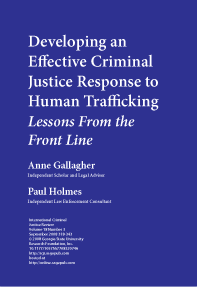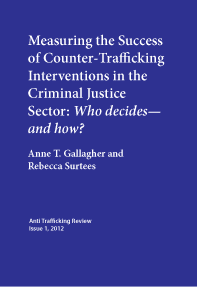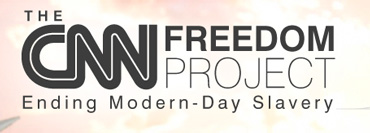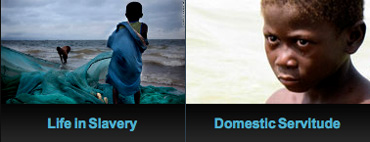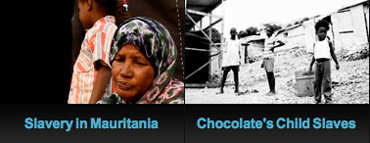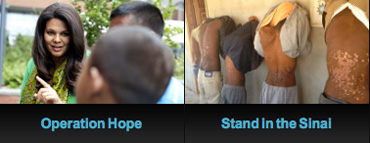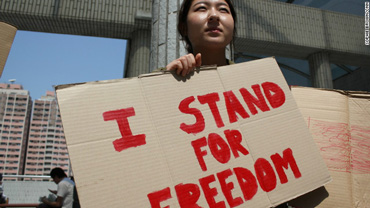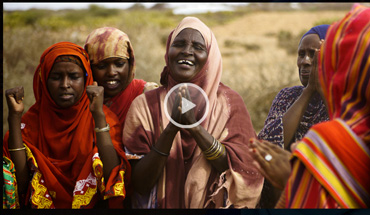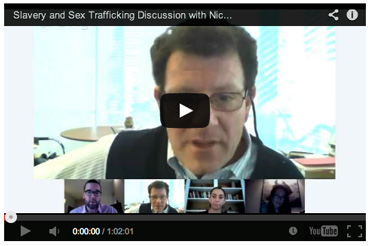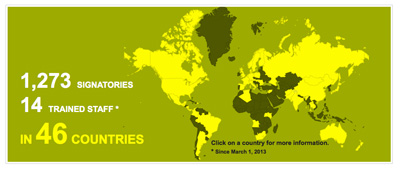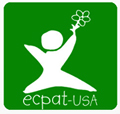![]()

Finance
Human Trafficking cases often come to light through financial activities - fraud and money laundering being the most common offenses. Collaboration with the Financial Sector and stronger Legislation forms the basis of the US Immigration and Customs Enforcement (ICE) initiative.
Project STAMP - An Enforcement Initiative Aimed at Targeting the Illicit Proceeds Earned by Human Smuggling and Human Trafficking (HS/HT) Organizations
Launched in 2012, Project STAMP (Smuggler Trafficker and Assets, Monies, and Proceeds) combats human trafficking, and other illegal activities through anti-money laundering regulations. The project relies on stringent regulations and collaboration with private financial sectors to combat human trafficking in the U.S. The federal laws allow law enforcement to charge potential traffickers with money laundering violations. The U.S. anti-money laundering violation penalizes violator with the fines up to $500,000 and/or imprisonment up to 20 years. According to the ICE website, it can be an important factor when an U.S. attorney decides whether to prosecute a potential trafficker.
Partnerships with the Financial Sector
The Bank Secrecy Act (BSA) requires financial institutions in the United States to assist U.S. government agencies to detect and prevent money laundering. BSA reports filed by financial institutions provide powerful tools that the U.S. government can use to identify, disrupt and dismantle criminal enterprises seeking to exploit potential vulnerabilities in the financial sector.
Click below for more details
- http://www.dhs.gov/project-stamp-smuggler-and-trafficker-assets-monies-and-proceeds
- http://www.ice.gov/stamp/
From the article "Private-Sector Initiatives" by USC University of Southern California
"At JP Morgan Chase, Barry Koch has developed tools for applying anti-money-laundering regimes to human trafficking networks. Because money-laundering schemes and human trafficking schemes both tend to involve hidden financial transactions, technological applications for detecting money laundering have proven useful in detecting other illicit transactions, as Koch discovered during an investigation of several credit card transactions at a nail salon during non-business hours. This investigation uncovered a human trafficking operation, and Koch further developed a regime for detecting human trafficking through technologically-tracked financial footprints and other collectible data. The establishment of such new counter-trafficking methods can inform other corporations about the impact that human trafficking has on their businesses and how to utilize existing security programs to address the issue."
Koch, B. (Director) (October 4, 2012). Leveraging Anti-Money Laundering Regimes to Combat Human Trafficking. Alliance against Trafficking in Persons Expert Seminar. Lecture conducted from Organization for Security and Co-operation in Europe, Vienna.
http://technologyandtrafficking.usc.edu/private-sector-initiatives/
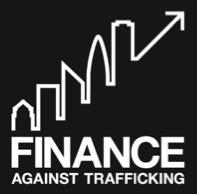
Finance Against Trafficking "run by business for business"
UK based, Finance Against Trafficking is part of the 45,000 strong community action member organization, Stop The Traffik, founded in 2007 http://www.stopthetraffik.org
Businesses, whatever service is provided or trade offered, product sold or money invested, are all at some potential risk - financial and reputational - of being touched by the traffickers' trade.
Finance Against Trafficking is working to raise awareness, equip and resource companies to help them effectively address all areas of their business that can be affected by people trafficking and manage the risk and threats to their supply chain, money services, reputational risk and prosecution.
Finance Against Trafficking is made up of volunteers from a variety of business sectors offering their time and services pro bono. http://financeagainsttrafficking.org/steering-group
Services the organisation offers include ChainChecker Their online tool to help audit businesses to identify areas of risk and good practice. Training staff to recognise the signs of human trafficking, ask the right questions and to mitigate the business's exposure through an informed workforce. Audit Their qualified supply chain security personnel (former UK law enforcement experienced in human trafficking) can help with a deep-dive company audits for signs of risk from human trafficking and to help manage supply chains. Legal Services Specialised, informed legal advice based on the risks businesses face from human trafficking. Enhanced Due Diligence, Red Flags and Investigations Threats of human trafficking are hard to spot, so enhanced due diligence and investigation services help them advise how at risk you are of being utilised by human trafficking groups and offer pragmatic solutions to counter the threat. Drafting human rights policies and preparing due diligence processes Companies should take steps to ensure that their in-house policies address their human rights impacts (including trafficking). The United Nations Guiding Principles for Business and Human Rights provide process guidance on how companies can achieve these goals, specifically on:
- Human rights policies and procedures
- Human rights due diligence
- Supply chain management
- Stakeholder issues
- Understanding effective integration
- Human rights reporting
- Operational level grievance mechanisms
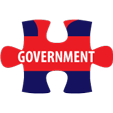
Government
Council of Europe
Since the late 1980s, the Council of Europe has invested considerable efforts in the fight against trafficking in human beings. These efforts culminated in the adoption, in May 2005, of the Convention on Action against Trafficking in Human Beings and the setting up of a mechanism to monitor compliance with the obligations contained in it. This monitoring mechanism is composed of the Group of Experts on Action against Trafficking in Human Beings (GRETA), a multidisciplinary panel of 15 independent experts, and the Committee of the Parties to the Convention. GRETA draws up country evaluation reports containing an analysis of the implementation of the Convention by each Party and proposals for further action.
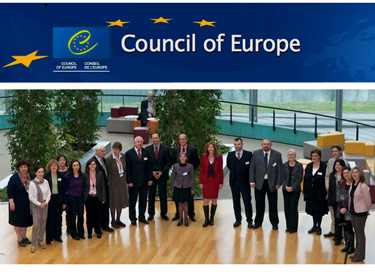 Strasbourg, 1 February 2013 Marked the 5th anniversary of the entry into force of the Council of Europe Convention on Action against Trafficking in Human Beings.
Strasbourg, 1 February 2013 Marked the 5th anniversary of the entry into force of the Council of Europe Convention on Action against Trafficking in Human Beings.
The Convention will enter into force as regards Switzerland and Germany on 1 April 2013.
The Convention has now been ratified by 39 Council of Europe member States Albania, Andorra, Armenia, Austria, Azerbaijan, Belgium, Bosnia and Herzegovina, Bulgaria, Croatia, Cyprus, Denmark, Finland, France, Georgia, Germany, Iceland, Ireland, Italy, Latvia, Lithuania, Luxembourg, Malta, Moldova, Montenegro, the Netherlands, Norway, Poland, Portugal, Romania, San Marino, Serbia, Slovak Republic, Slovenia, Spain, Sweden, Switzerland, "the former Yugoslav Republic of Macedonia", Ukraine and the United Kingdom.
The Convention has also been signed but not yet ratified by another four Council of Europe member States: Estonia, Greece, Hungary and Turkey.
US Government and South East Asian Countries
This video, from the Australian National University, is an interview with Dr Anne Gallagher AO, a leading global expert on the international law on human trafficking. During the interview she describes the US Government equivalent (to GRETA's) analysis and reporting mechanism which carries with it sanctions against countries that fail to meet minimum standards of tackling Human Trafficking. Also discussed is Dr Anne Gallagher's work with the governments of the South East Asian countries, initiated and funded by the Government of Australia.
Note: Additional resources from Dr Anne Galagher can be found under the "LEGAL" section of this carousel.
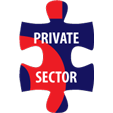
Private Sector
MINING DATA to craft solutions to social problems - the private sector is becoming a source of innovation in collaborative counter-trafficking initiatives.

THORN DRIVES TECHNOLOGY INNOVATION TO FIGHT THE SEXUAL EXPLOITATION OF CHILDREN.
Partnering across the tech industry, government and NGOs and leveraging technology to combat predatory behavior, rescue victims, and protect vulnerable children, Thorn is a rapidly growing organisation that is already making a difference.
THORN'S TECHNOLOGY TASK FORCE comprises more than 20 technology companies that lend their knowledge, time and resources. They are:
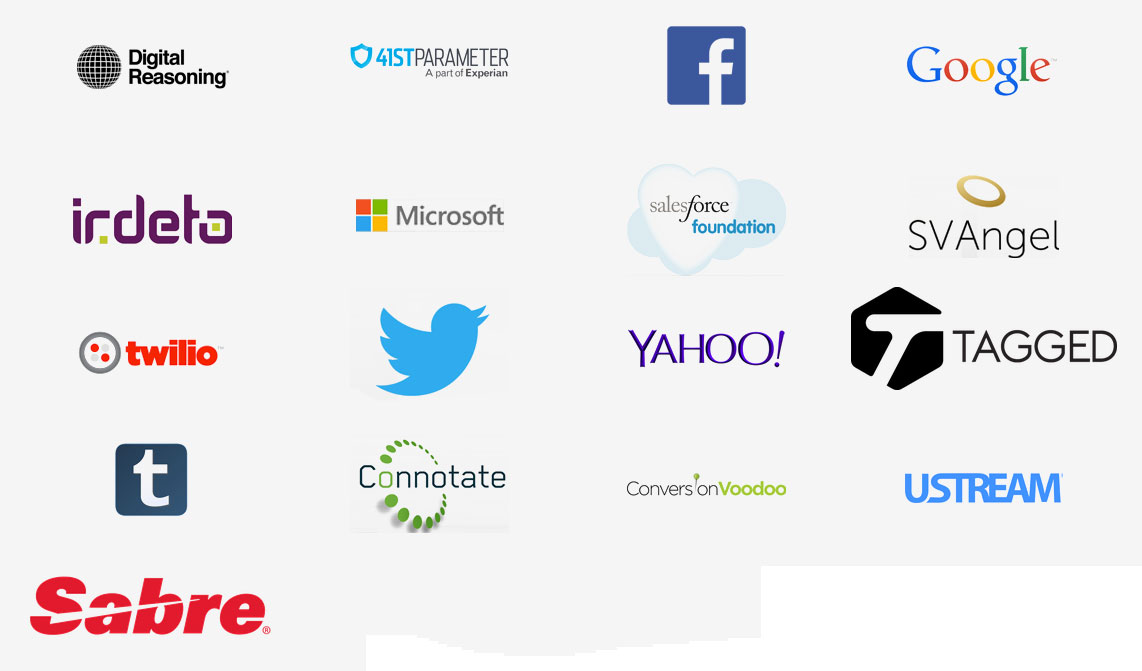
Thorn's Spotlight Tool

Thorn has partnered with the McCain Institute, Google and Digital Reasoning to create Spotlight, a web-based tool that provides law enforcement with intelligence and leads about suspected human trafficking networks and individuals in order to identify and assist victims faster.
Spotlight is offered free of charge to law enforcement and relevant NGOs (e.g., NCMEC). Spotlight is currently being made available to human trafficking investigators across the United States. If you would like to gain access to Spotlight for your investigations and learn more about the tool, please contact spotlight@wearethorn.org. - See more CLICK HERE
Learn more about We Are Thorn or join them and become a DIGITAL DEFENDER... CLICK HERE
_________________________________________
"Private-Sector Initiatives"
by USC University of Southern California
Full article and credits and references
(The following excerpts are taken from the above article.)
In June 2012, Microsoft Digital Crimes Unit and Microsoft Research collaborated on an initiative to support researchers who have creative ideas for clarifying the role of technology in facilitating the commercial sexual exploitation of children. The Microsoft groups awarded a total of $185,000 to six research teams studying a wide variety of angles on the issue, [...] When the research concludes, Microsoft Digital Crimes Unit and Microsoft Research intend to make the findings available to help develop tools for disrupting technology-facilitated sex trafficking.
In December 2011, Google granted a total of $11.5 million to counter-trafficking organizations, part of which was allocated to support new initiatives utilizing technology to combat human trafficking. This technology-focused initiative reportedly includes projects with Polaris Project, Slavery Footprint, and the International Justice Mission. In July 2012, Google Ideas collaborated with the Council on Foreign Relations and Tribeca Enterprises to host the Illicit Networks, Forces in Opposition (INFO) Summit. [...] Google intends for several of the initiatives established at the summit to be launched in the upcoming year.
Software company Palantir Technologies has worked with the National Center for Missing and Exploited Children (NCMEC) to improve NCMEC's ability to make sense of all the data at its disposal. [...] In 2012, Palantir also initiated a partnership with Polaris Project to provide the analytical platform and engineering, training, and support resources to the NHTRC to enable the study and application of data derived from their call records.
LexisNexis in collaboration with the NHTRC, LexisNexis developed a national database of social service providers. LexisNexis also created an online resource center for attorneys who work with human trafficking victims and is working with the American Bar Association to establish a training institute on civil remedies for victims. LexisNexis offers direct financial, legal, and technical advice to the counter-trafficking NGOs the Somaly Mam Foundation and Agir pour les Femmes en Situation Precaire. It also established the Human Trafficking Awareness Index, a tool that tracks and analyzes the volume of news articles related to human trafficking produced by 6,000 of the most influential news sources from more than 120 countries....
The business community, as a whole, has a significant role to play in advancing progress towards ending human trafficking.
gBCAT is a global coalition of corporations committed to eradicating trafficking in supply chains, including forced labor and all sex trafficking, notably child prostitution. gBCAT is a thought leaders' forum to develop and share best practices for addressing the vulnerability of businesses to human trafficking in their operations. gBCAT companies will work together across different sectors and regions, each playing their own part, suited to their sector and comparative competencies. gBCAT will pursue collaborative initiatives such as training modules for employees, raising awareness, sharing best-practices, and informing public policy.
Corporate Social Responsibility
Board Oversight of CSR & The Role of the CSR Committee
Posted on March 11th, 2013 by Sarah A. Altschuller
Shareholders increasingly expect boards of directors to exercise greater oversight over the social and environmental impacts of corporate activities. The 2013 Proxy Preview recently published by As You Sow, the Sustainable Investments Institute, and Proxy Impact, noted that the shareholders have recently filed approximately two dozen proposals requesting structural governance reforms in terms of how companies manage and oversee social and environmental issues, including specific requests that boards develop committees on specific subjects and/or identify board member nominees with relevant expertise.
A key function of a corporate board is to oversee management's approach to risk management, legal and regulatory compliance, and strategic planning. Boards are also critical in ensuring that corporate strategies are consistent with the long-term sustainability of the enterprise.
Corporate Responsibility for Human Trafficking & Five Steps that Your Company Can Take Right Now
Posted on November 30th, 2012 by Sarah A. Altschuller

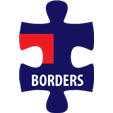
Borders
This section highlights the work of three organizations working within borders and across them. The International Organisation For Migration (IOM) exists because of borders and the movement of people(s) around the globe. Their counter trafficking work covers a broad spectrum, from international trend analysis to state specific local awareness and assistance. The US Department of Homeland Security combats Human Trafficking within the borders of the US through their Blue Campaign, launched in 2010, tackling Human Trafficking on a national scale through collaboration, partnerships, training and public-awareness raising initiatives. CEPOL (European Police College) brings together senior police officers across Europe with the aim to encourage cross-border cooperation in the fight against crime and maintenance of public security and law and order.
IOM Counter Trafficking
http://www.iom.int/cms/countertrafficking
IOM operates from the outset that trafficking in persons needs to be approached within the overall context of managing migration. Its broad range of activities is implemented in partnership with governmental institutions, NGOs and international organizations. The approach is based on three principles that govern all its counter-trafficking activities:
- Respect for human rights
- Physical, mental and social well-being of the individual and his or her community
- Sustainability through institutional capacity building of governments and civil society
IOM conducts both quantitative and qualitative research as an essential information source to improve its - and others - fight against human trafficking. Specific areas of focus have included human trafficking routes and trends, the causes and consequences of human trafficking both for the individual trafficked person and for society as well as the structures, motivations, and modi operandi of organized criminal groups. While much of this work has been done at national level, IOM increasingly collects and analyzes data on human trafficking from a regional perspective to better support cooperation between states to combat cross-border trade. To support these efforts, IOM carries out considerable research in the areas of legislation and policy.
IOM's Vision
Building on its individual commitment and global presence, IOM strengthens the capacities of its partners in government and civil society and sets operational standards to achieve sustainable results that will:
- provide protection and empower trafficked women, men, girls and boys;
- raise awareness and understanding of the issue; and
- bring justice to trafficked persons.
IOM has been working to counter the trafficking in persons since 1994. In this time, it has implemented more than 800 projects in over 100 countries, and has provided assistance to approximately 20,000 trafficked persons. Its primary aims are to prevent trafficking in persons, and to protect victims from the trade while offering them options of safe and sustainable reintegration and/or return to their home countries.
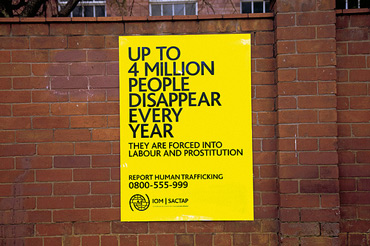
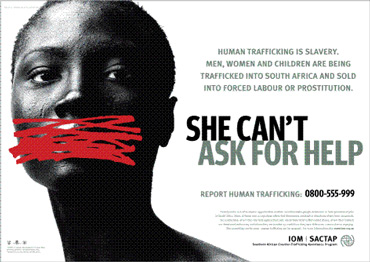 Two South African Campaigns
Two South African Campaigns
Music video against human trafficking and sexual exploitation launched in El Salvador
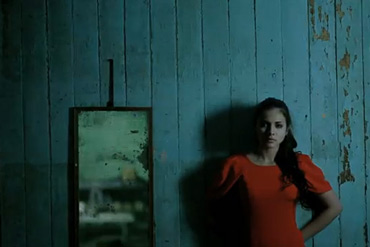 Posted on Fri, Mar-08-2013
Posted on Fri, Mar-08-2013
El Salvador – IOM in El Salvador has teamed up with UNFPA and the ILO to launch a music video warning young women against the dangers of human trafficking and sexual exploitation.
US Department of Homeland Security
BLUE CAMPAIGN - A National Campaign with Resources for multiple partners
http://www.dhs.gov/fact-sheet-dhs-blue-campaign
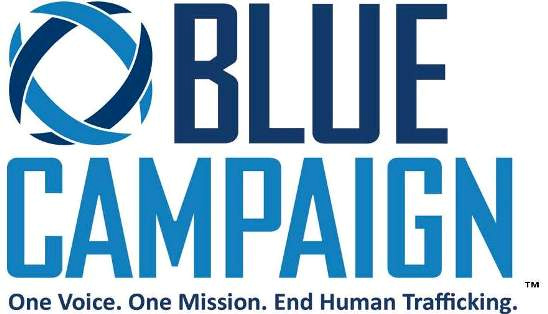
In 2010, Secretary Napolitano launched the Blue Campaign - a first-of-its-kind initiative to coordinate and enhance the Department's anti-human trafficking efforts. The components of the Department of Homeland Security (DHS) combat human trafficking through a variety of programs, and the Blue Campaign coordinates and unites this work.
Resources for the Public
Training: The Blue Campaign created training for many audiences including the public, law enforcement, airline personnel, the U.S. Government acquisition workforce, DHS personnel, and domestic and foreign partners. The trainings are available at www.dhs.gov/humantrafficking.
Informational Videos and Materials: The Blue Campaign created wallet-sized indicator cards, indicator pamphlets, indicator posters, a brochure about Continued Presence, brochures and fact sheets with immigration relief information for victims, a pamphlet targeted toward the faith-based community, and videos to help educate first responders and the general public about human trafficking. These materials are available electronically at www.dhs.gov/humantrafficking and in hard copy (where applicable) via a request form on the web site.
Public Awareness Campaigns: The Blue Campaign created several public awareness campaigns, including a video played on the CNN Airport Network in airports across the country, a U.S. Immigration and Customs Enforcement (ICE) campaign to help the public identify victims called Hidden in Plain Sight, and a U.S. Customs and Border Protection (CBP) campaign to inform migrants of the dangers of human trafficking.
Victim Assistance And Perpetrator Justice: The Blue Campaign helped coordinate the Department's efforts to enhance the ability to serve victims by assigning victim specialists to ICE Special Agent in Charge offices across the country, increasing the number of ICE forensic interviewers, increasing U.S. Citizenship and Immigration Services (USCIS) victim confidentiality provisions, and creating CBP victim-centered materials. ICE continues to prioritize the investigation of human trafficking cases. In fiscal year 2011, ICE initiated more than 700 human trafficking investigations, which resulted in more than 930 arrests, 400 indictments, and 270 convictions.
Partnerships And Collaboration: The Blue Campaign developed a toolkit for the private sector and distributed it to tens of thousands of employers, including those in the lodging, transportation, entertainment, agricultural, manufacturing, and construction industries. The Blue Campaign continues to engage with stakeholders in biannual public meetings.
Resources and Contacts
Blue Campaign resources and materials are available at
For additional information, please contact bluecampaign@dhs.gov
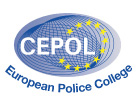 CEPOL (European Police College)
CEPOL (European Police College)
Established as an agency of the European Union (EU) in 2005, the CEPOL Secretariat is based at Bramshill in the United Kingdom, approximately 70km from central London. CEPOL organises between 60-100 courses, seminars and conferences per year. The implementation of the activities takes place mainly at the national senior police training institutes of the Member States.
Trafficking in Human Beings training course:
The Common Curriculum on Trafficking in Human Beings (THB) aims to broaden knowledge of senior police officers responsible for THB investigations. Upon the completion of the course, the students should:
- Have knowledge about: national and international THB context, its concept, and legislation; bilateral, regional and international cooperation including Interpol, Europol and Eurojust's measures against THB; links between THB and other criminal networks; THB and ICT; specifics of various forms of exploitation; traffickers and victims' profiling and appropriate preventive mechanisms; specifics of trafficking in children, and THB and money laundering;
- Improve skills on: THB intelligence/evidence gathering; THB investigative methods and techniques; national and international institutional cooperation combatting THB; victims' handle and equilibrium between the victim's interests and police investigation; and interviewing techniques.
https://www.cepol.europa.eu/index.php?id=home0

Law Enforcement
Law Enforcement Information Sharing Service
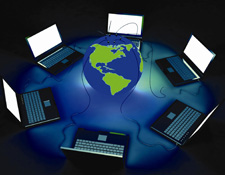
Information Sharing and International Training by the US Department of Homeland Security.
The Law Enforcement Information Sharing Service is a web-based data exchange platform, hosted by the Department of Homeland Security (DHS), that allows law enforcement agencies to rapidly share and access data related to criminal and national security investigations.
The automated service offers a more efficient system for requesting and sharing investigative information, helping investigators to more quickly identify patterns, connections and relationships between individuals and criminal organizations.
DHS law enforcement information is processed through the ICE Pattern Analysis and Information Collection System and includes information from subject records and closed cases concerning people, businesses, vehicles (including aircraft and seacraft), firearms and more.
The Law Enforcement Information Sharing Service currently provides federal, state, local, tribal and international law enforcement agency partners with access to more than 2.6 million subject records.
Deployment of Law Enforcement Information Sharing Service
The service was developed as part of DHS' goal to expand collaboration and information-sharing with law enforcement partners. The service has been successfully deployed on a regional basis in San Diego, Los Angeles, Seattle, Arizona and Texas. In addition, the U.S. Department of Justice established connectivity to the service via the OneDOJ program.
Benefits
- Access to federal database information related to investigations and criminal records;
- Secure web-based platform allows user access from virtually anywhere;
- Faster than manual processes; and
- Improved communication between law enforcement partners.
Knowledge Sharing via International Law Enforcement Academies
The US State Department also delivers Human Trafficking Training Programs internationally through its four International Law Enforcement Academies in Bangkok, Budapest, Gaborone and San Salvador. We hope to connect "virtually" to one of the programs running simultaneously during the 2013 Summit.
http://www.fletc.gov/training/programs/human-trafficking-training-program/
NOTE: The US Department of Homeland Security also offer a web-based human trafficking training course under The Blue Campaign that teaches law enforcement officers how to recognize human trafficking encountered during routine duties, how to protect victims, and how to initiate human trafficking investigations. More about The Blue Campaign resources can be found under the BORDERS section and at http://www.dhs.gov/topic/human-trafficking
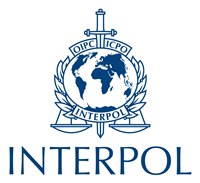 Bringing the Worlds Police Forces Together to Solve Transnational Crime
Bringing the Worlds Police Forces Together to Solve Transnational Crime
INTERPOL is the world's largest international police organization, with 190 member countries. Their role is to enable police around the world to work together to make the world a safer place. Through their high-tech infrastructure of technical and operational support they help meet the growing challenges of fighting crime in the 21st century.
24 a day, 365 days a year, the General Secretariat in Lion, gathers, analyses and shares information on crime, providing up to the minute, realtime data, analysis, activity and alerts to its 190 member countries.
INTERPOL facilitates international police cooperation even where diplomatic relations do not exist between particular countries. Working within the limits of existing laws in different countries and in the spirit of the Universal Declaration of Human Rights.
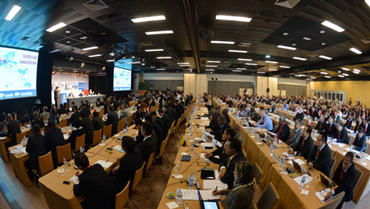
17 April, 2013. LYON, France – Addressing INTERPOL's ninth Heads of National Central Bureaus (NCBs) conference, attended by some 280 delegates from 156 countries, INTERPOL President Mireille Ballestrazzi said that more than ever before contemporary crime was defined by its transnational nature.
"INTERPOL needs to have a global view that is also local in its focus. This is why INTERPOL doesn't offer just one, but many solutions in response to the different types of crime in each of our member countries, adapted to individual national law enforcement needs," said President Ballestrazzi.
Partnerships to Combat Human Trafficking
INTERPOL works closely with other international organizations and non-governmental bodies involved in the fight against human trafficking and people smuggling. In this way, we can combine our strengths and exchange best practice and knowledge with other organizations that have similar aims.
Our partners include:
- Economic Community of West African States
- Eurojust
- Europol
- Frontex
- International Centre for Migration Policy Development
- International Labour Organization
- International Organization for Migration
- Organization of American States
- Organization for Security and Co-operation in Europe
- Southeast European Cooperative Initiative
- United Nations Office on Drugs and Crime
Human Trafficking Operations
INTERPOL supports national police in tactical deployments in the field, aimed at breaking up the criminal networks behind trafficking in human beings and people smuggling.
Operations are preceded by training workshops to ensure that officers on the ground are trained in a range of skills, including specialist interview techniques. Deployments effectively combine police action with input from a number of different sectors such as customs and environmental officers, non-governmental organizations, officials from the Ministries of Health and Social Affairs, and prosecutors.
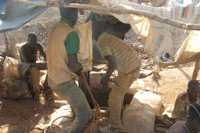 2012 : Operation Tuy
2012 : Operation Tuy
OUGADOUGOU, Burkina Faso – Nearly 400 child trafficking victims, some as young as six years old, forced to work in illegally-operated gold mines and cotton fields have been rescued following an operation by police in Burkina Faso coordinated by INTERPOL.Some 165 police officers, together with officials from customs, social and health services took part in Operation Tuy which targeted sites in Ougadougou, Houndé and Bobo Dioulasso, resulting in 73 individuals being arrested in connection with child trafficking and labour offences. READ MORE
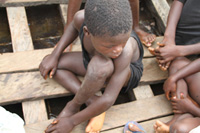 2011: Operation Bia II
2011: Operation Bia II
Ghana police rescue 116 children from forced labour in fishing industry with INTERPOL support. Children aged between 5 and 17 were forced to work 14-hour days on the fishing boats. READ MORE
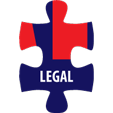
Legal
International Justice Mission
Founded in 1997, the International Justice Mission (IJM) is a human rights agency that brings rescue to victims of slavery, sexual exploitation and other forms of violent oppression. IJM lawyers, investigators and aftercare professionals work with local officials to secure immediate victim rescue and aftercare, to prosecute perpetrators and to ensure that public justice systems - police, courts and laws - effectively protect the poor.
Vision: To rescue thousands, protect millions and prove that justice for the poor is possible. ™ http://www.ijm.org/
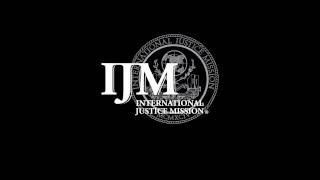
https://www.youtube.com/watch?v=HRrWpmIaW6U
IJM's justice professionals work in their communities in 16 field offices in Asia, Africa and Latin America to secure tangible and sustainable protection of national laws through local court systems.
IJM Collaborative Casework
IJM investigators, lawyers and social workers intervene in individual cases of abuse in partnership with state and local authorities to ensure proper support for the victim and appropriate action against the perpetrator. Such collaboration is essential to obtain convictions against individual perpetrators and to bring meaning to local laws that are meaningless if not enforced.
The Protection Project
Headed by Professor Mohamed Mattar, The Protection Project is a human rights institute based at The Johns Hopkins University School of Advanced International Studies in Washington, DC. The Protection Project also has a field office in Alexandria, Egypt based at the Alexandria University, Faculty of Law, tasked with implementing the organization's programs in the Middle East
Founded in 1994 to address trafficking in persons as a human rights violation, The Protection Project focuses on the promotion of human rights values throughout the world. Our emphasis is the protection of human security, especially in women's and children's rights; fostering civil society and NGO development through capacity & coalition building; enhancing the rule of law by encouraging citizen participation; advancing human rights education; Encouraging state observance of internationally recognized human rights; Eliminating trafficking in persons.
The Protection Project's work may be divided into seven different areas of work. These are:
- Trafficking in Persons
- Clinical Education
- Corporate Social Responsibility
- Legal Reform
- Promotion of Religious Dialogue
- Enhancing Capacity of Civil Society Human Rights
- Education
Conferences & Seminars
The Protection Project is vested in making a difference in the United States and abroad. In doing so, The Protection Project, has, throughout the years, convened a variety of conferences, symposia, and seminars focusing on human rights issues of our day—to lead the national discussion and to raise awareness of key challenges.
http://www.protectionproject.org/activities/conferences-seminars/
Lists Conferences and symposiums (past and present) and access to speeches and agendas.
Independent Legal Advisor and Scholar, Dr Anne Gallagher
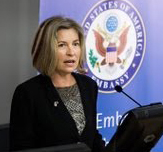
Below are two resources Dr Anne Gallagher has shared with us. The first highlights why it was critical to agree on a definition unilaterally and then clearly outlines essential elements for an effective criminal justice response. The second, on measuring success, is vitally important guide in any competitive arena for resources.
NOTE: An interview with Dr Anne Gallagher can be found under "Government" within this section.American Bar Association Task Force on Human Trafficking
The ABA Task Force on Human Trafficking was created by ABA President Laurel Bellows in August 2012 to mobilize the legal profession to combat human trafficking through public awareness, advocacy, training and education. The Task Force is chaired by Jimmy Goodman from Oklahoma City, Oklahoma of the Section on Litigation and Linda Hayman from New York, New York of the ABA Business Law Section, and has 18 members who were appointed by President Bellows. Profiles for each member are on this page. The Task Force will coordinate with over a dozen ABA entities to address different areas of concern, such as corporate standards, pro bono, training, public awareness, legislation and legislative advocacy and children's issues. Descriptions of the various projects are also on this page. If you would like to get involved, please send an email to Vivian Huelgo, Chief Counsel to the Task Force on Human Trafficking, and state the specific project in which you are interested.
Through Taking Action on Trafficking, The ABA addresses Human Trafficking through a number of projects developed through ABA leader entities. For example,
Corporate
The Task Force on Human Trafficking will coordinate the following projects:
Develop and promote a dialogue on human trafficking in the business community with special focus on corporate boards; assemble and distribute educational materials regarding business conduct standards applicable to human trafficking. Develop and promote business conduct standards and policies for companies addressing human trafficking to ensure clean supply chains and develop and promote a zero tolerance policy for employees directly engaged in human trafficking. To assist with this project, join the ABA Business Law Section.
Visit this link for further details of ABA Pro Bono, Public Awareness, Training and Legislation in Human Trafficking
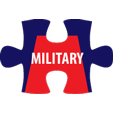
Military
Open Source Security
This section looks at an "Open Source" approach to global security from the military perspective of Admiral James Stavridis The first US Navy officer to hold the positions of Commander of the US European Command (USEUCOM) and of NATO's Supreme Allied Commander Europe (SACEUR).
"Imagine global security driven by collaboration -- among agencies, government, the private sector and the public. That's not just the distant hope of open-source fans, it's the vision of James Stavridis, a highly accomplished Navy Admiral. Stavridis shares vivid moments from recent military history to explain why security of the future should be built with bridges rather than walls.
What will 21st-century security look like? Navy Admiral James Stavridis suggests that dialogue and openness will be the game-changers."
JUNE 2012 EDINBURGH SCOTLAND:

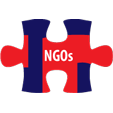
United NGOs
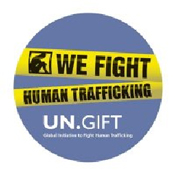 The United Nations Global Initiative to Fight Human Trafficking (UN.GIFT) was conceived to promote the global fight on human trafficking, on the basis of international agreements reached at the UN. To date, 140 parties have signed the Protocol to Prevent, Suppress and Punish Trafficking in Persons especially Women and Children, which supplements the Palermo Convention against transnational organized crime.
The United Nations Global Initiative to Fight Human Trafficking (UN.GIFT) was conceived to promote the global fight on human trafficking, on the basis of international agreements reached at the UN. To date, 140 parties have signed the Protocol to Prevent, Suppress and Punish Trafficking in Persons especially Women and Children, which supplements the Palermo Convention against transnational organized crime.
UN.GIFT was launched in March 2007 by the
- International Labour Organization (ILO), the Office of
- United Nations High Commissioner for Human Rights (OHCHR),
- United Nations Children's Fund (UNICEF),
- United Nations Office on Drugs and Crime (UNODC),
- International Organization for Migration (IOM) and
- Organization for Security and Cooperation in Europe (OSCE).
UN.GIFT was made possible by a grant of the United Arab Emirates and has since received additional financial support from the Governments of Australia, Austria, Belgium, Canada, Switzerland as well as UNICEF, the United Nations Development Fund for Women (UNIFEM), the United Nations Development Programme (UNDP), the United Nations Fund for International Partnerships and public donations.
UN.GIFT works with all stakeholders - governments, business, academia, civil society and the media - to support each other's work, create new partnerships and develop effective tools to fight human trafficking.
The Global Initiative is based on a simple principle: human trafficking is a crime of such magnitude and atrocity that it cannot be dealt with successfully by any government alone. This global problem requires a global, multi-stakeholder strategy that builds on national efforts throughout the world.
To pave the way for this strategy, stakeholders must coordinate efforts already underway, increase knowledge and awareness, provide technical assistance; promote effective rights-based responses; build capacity of state and non-state stakeholders; foster partnerships for joint action; and above all, ensure that everybody takes responsibility for this fight.
By encouraging and facilitating cooperation and coordination, UN.GIFT aims to create synergies among the anti-trafficking activities of UN agencies, international organizations and other stakeholders to develop the most efficient and cost-effective tools and good practices.
Mission Statement
UN.GIFT aims to mobilize state and non-state actors to eradicate human trafficking by reducing both the vulnerability of potential victims and the demand for exploitation in all its forms; ensuring adequate protection and support to those who fall victim; and supporting the efficient prosecution of the criminals involved, while respecting the fundamental human rights of all persons.
In carrying out its mission, UN.GIFT will increase the knowledge and awareness on human trafficking; promote effective rights-based responses; build capacity of state and non-state actors; and foster partnerships for joint action against human trafficking.
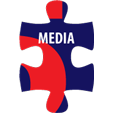
Media
Cable News Network (CNN)
CNN is the U.S. cable news channel founded in 1980 by American media mogul Ted Turner. Upon its launch, CNN was the first channel to provide 24-hour television news coverage, and the first all-news television channel in the United States.
The CNN Freedom Project
The CNN Freedom Project produces original reports, articles, and documentaries on human trafficking in all of its forms– from debt bondage in India to sex trafficking rings in Southern California and African slaves in the Sinai dessert. In addition, the production team curates digital resources with information on global advocacy groups working against human slavery. Users of www.cnn.com/freedom can find details on how to support or volunteer with anti-slavery organizations, watch CNN Freedom Project videos, and read in-depth articles and behind-the-scenes reporters' notebook stories from the journalists reporting for CNN Freedom Project investigations.
The CNN Freedom Project has generated more than 300 stories of modern-day slavery from across five continents. Lisa Cohen and Leif Coorlim produce for the CNN Freedom Project, which is overseen by CNN International's senior vice president for programming, Mike McCarthy. Many notable figures in the fight against human trafficking have partnered with the CNN Freedom Project since its launch, including Nick Cannon, Common, Emmanuel Jal, Anil Kapoor, Demi Moore, and Mira Sorvino.
http://thecnnfreedomproject.blogs.cnn.com/
Hong Kong students take a stand against slavery
Hong Kong (CNN) – College students in Hong Kong stood on campus for 27 hours to raise awareness of modern-day slavery, in a campaign that ended on Thursday.
The "Stand for Freedom" event, which was organized by students from the University of Hong Kong's International Christian Fellowship group, raised HK $10,000 (U.S.$1,300) for human rights agency International Justice Mission.

A special presentation of Independent Lens
A landmark transmedia project featuring a four-hour PBS primetime national and international broadcast event, a Facebook-hosted social action game, mobile games, two websites, educational video modules with companion text, a social media campaign supporting over 30 partner NGOs, and an impact assessment plan all inspired by Half the Sky: Turning Oppression into Opportunity for Women Worldwide, the widely acclaimed book by Nicholas Kristof and Sheryl WuDunn.
http://www.pbs.org/independentlens/half-the-sky/film/
HALF THE SKY
Filmed in 10 countries, the series follows Nicholas Kristof and celebrity activists America Ferrera, Diane Lane, Eva Mendes, Meg Ryan, Gabrielle Union and Olivia Wilde on a journey to tell the stories of inspiring, courageous individuals. Across the globe oppression is being confronted, and real meaningful solutions are being fashioned through health care, education, and economic empowerment for women and girls.
The linked problems of sex trafficking and forced prostitution, gender-based violence, and maternal mortality — which needlessly claim one woman every 90 seconds — present to us the single most vital opportunity of our time: the opportunity to make a change. All over the world women are seizing this opportunity.
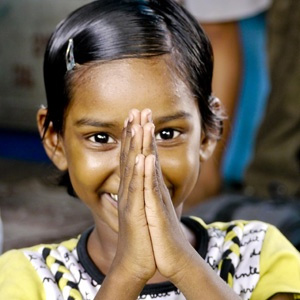
Girl at New Light Crèche in Kolkata, India
Photo by Joshua Bennett
The series is part of the Women and Girls Lead initiative, spearheaded by ITVS in partnership with CPB and PBS
Anti Trafficking Consultants Working with Media and Documentary Makers
 Anti Trafficking Consultants – ATC - has been designed at the inspiration of Andrew Desmond, former Metropolitan Police Detective, in a clear response to the need to bring together in one place services and knowledge that support the challenges faced as we tackle the horror of Human Trafficking.
Anti Trafficking Consultants – ATC - has been designed at the inspiration of Andrew Desmond, former Metropolitan Police Detective, in a clear response to the need to bring together in one place services and knowledge that support the challenges faced as we tackle the horror of Human Trafficking.
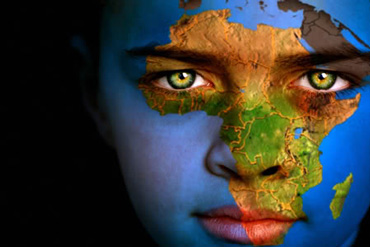
Andy's particular area of expertise is West Africa and the use of JuJu to suppress and control predominately women who are sent around the globe to be exploited as modern day slaves trapped in servitude, often sexually. Director Andy Desmond brought the first successful UK prosecution in a Human Trafficking case involving Nigerian JuJu to control victims (Woolwich Crown Court July 2011).
Working with media: ATC works with the media in a variety of ways from support on documentary making, to help creating authentically voiced scripts through to advising journalists on current awareness particularly in relation to West Africa and JuJu. http://www.antitraffickingconsultants.co.uk/what-we-do/
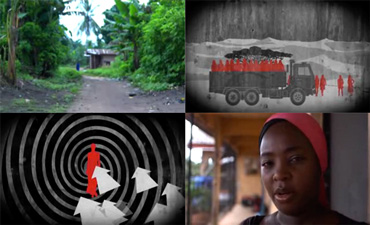
ARE YOU AWARE? is a documentary focussed on sex trafficking in Europe from Nigeria with interviews with Andy Desmond, UK, Gerald Tatzgern of Austrian BMI's Anti-Human Trafficking and Migrant Smuggling Unit, Nigerian media (Phenomenon | People Magazine, Nigeria & Nollywood Nigeria), victims and survivors, judges, health workers, victim support and Shannon Bullock, UNODC Austria and Euridice Marquez of IOM Austria and EXIT - Organisation to Combat Human Trfficking From Africa.

MTV EXIT
Sponsored by USAID, Australian Aid, Walk Free, ASEAN and UNICEF. MTV EXIT aims to increase awareness and prevention of human trafficking through television programs, online content, live events, and partnerships with anti-trafficking organizations.
MTV EXIT LIVE IN MYANMAR
Yangon, Mianmar, December 2012
Jason Mraz, recently became the first ever international artist to perform a mass open air concert in the Yangon Peoples Square, Myanmar, to an audience of 70,000. The singer/songwriter teamed up with MTV EXIT to educate, empower and engage a country where Human Trafficking is a significant problem.
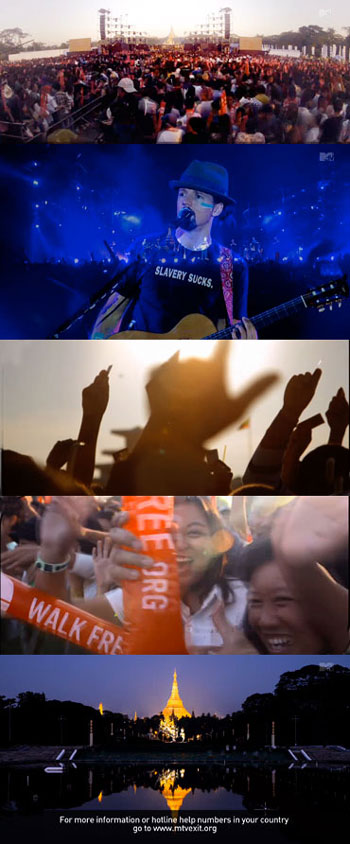
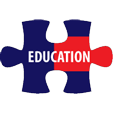
Education
Combatting Trafficking Through Education
-
Supply and Demand
Traffickers target the un-educated because they have much more success exploiting, intimidating and retaining them. Even the most elementary education can provide the tools necessary to aide escape or avoid exploitation in the first place.
World Education
World Education is an organisation that works collaboratively on the ground in communities around the world and is dedicated to improving the lives of the poor through education, economic and social development programs. They jointly develop strategy - appropriate to the local context and the needs of grassroots constituents - through partnerships with local stakeholders.
http://www.worlded.org/WEIInternet/publications/index.cfm?cat=childlabor
The Brighter Futures Project
Final Report: Executive Summary
World Education's Brighter Futures Program (BFP) was an eight year initiative supported by the U.S. Department of Labor whose aim was to reduce the number of children engaged in exploitative child labor in Nepal. The project has been extraordinarily successful, providing educational and other support to 43,291 children working in the worst forms of child labor in Nepal and to 72,140 children identified as particularly at-risk. Nepal is now witnessing major changes as more children enter into formal, non-formal, and vocational education programs in lieu of child labor industries. This report summarizes BFP's work with children in the different labor industries, and serves as an introduction to the series of thematic strategies reports and status reports that comprise the final report of the project. (World Education/Brighter Futures project, 2009.)
Download The Brighter Futures Project Final Report: Executive Summary (PDF, 16.13 MB)
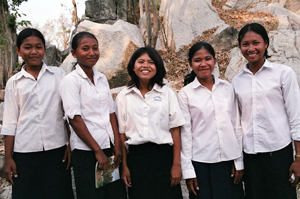
Chhiv Ya (center) and her girlfriends all attend school
with support from World Education's OPTIONS Program. © World Education Staff
Combating Child Trafficking and Exploitation through Education – Cambodia:
Poor, rural children are highly vulnerable to sexual exploitation and human trafficking—especially girls. World Education uses in- and out-of-school programs to help vulnerable children better understand the dangers of trafficking and improve their literacy, health, critical thinking, and decision making skills. Learn more.
Results:
- Nearly 15,000 children vulnerable to exploitation have participated in basic education programs that promote decision making and leadership skills.
- From 2003-2006, 70% of enrolled children completed education programs and the majority of girls completed vocational training.
Read this program success story: Using Education to Combat Child Trafficking in Cambodia
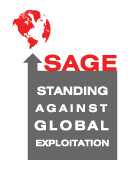
Reducing Demand Through Education
SAGE (Standing Against Global Exploitation)
SAGE's first program, the First Offender Prostitution Program* (1995), is an innovative and award-winning partnership between SAGE, the San Francisco District Attorney's Office and the San Francisco Police Department to address the "Demand" for prostitution in the community. The program created a "John School" to educate men who are arrested while seeking the services of women in prostitution, and included a restorative justice component through which the young women arrested could receive safety planning, trauma services, health, and counseling through the SAGE Project's Early Intervention Prostitution Program. Today, John School's exist in 21 states across the country, as well as Washington D.C.
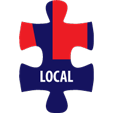
Local
Local responses to Human Trafficking inspire stories like these:
MARK ELAM AND O.A.T.H. (Oklahomans Against Trafficking Humans)
"Several years ago I saw a special on MSNBC where some men with International Justice Mission flew to Cambodia and worked with local law enforcement to rescue children from a brothel and get them to safety. The next year one of the young ladies from our Church returned from India informing us that children were being sold into labor and sex trafficking.
In 2006 I traveled to India, Southeast Asia and the Philippines to meet and work with organizations that rescue women and children from sex trafficking. We formed a nonprofit called "Angel Eyes" that supports the work of these organizations. Then in 2007 I learned that the US was also combating human trafficking here in our own country. I realized that this was what I wanted to be doing for the rest of my life, so I sold my business to dedicate myself full time to this issue globally and locally.
Looking throughout our state to find an organization that we could partner with revealed that there was no ongoing effort or even knowledge of the issue. I traveled to visit with several of the DOJ H.T. Task Force cities to learn what they were doing and brought that template back to Oklahoma. We began meeting in 2008 in Tulsa and later that year the FBI formed the H.T. Task Force in Oklahoma City.
Oklahomans Against Trafficking Humans (O.A.T.H.) was organized in 2008 by a small group of concerned citizens in Tulsa that had, along with me, become aware of trafficking problems here in our state. The initial mission was to bring awareness about human trafficking and the activity of traffickers operating here in Oklahoma and to create a victim-centered approach to our advocacy.
In February 2009 I was invited to the federal building in OKC where the Assistant US Attorney, FBI, and ICE agents commissioned OATH to become the statewide organization for awareness, education and networking victim services.
In Marchl 2009 OATH, Inc. was registered with the state of Oklahoma as a nonprofit charitable organization doing business in Oklahoma."
February 2010: Mr. Elam was invited along with other national human trafficking experts to participate in the Bureau of Justice Affairs and the Upper Midwest Community Policing Institute "Focus Group" to review the previous 10 years of U.S. effort in ending human trafficking and to provide a new model for the Department of Justice and HHS Department to Combat Trafficking in Persons.
April 2010: OATH partnered with Oklahoma Regional Community Policing Institute in conjunction with a grant through the District Attorney Council to conduct 8 hour CLEET-certified law enforcement trainings on human trafficking in every county throughout the state. To date, over 800 officers have attended this training.
July 2010: OATH formed the Tulsa Human Trafficking Task Force with over 40 federal, state and local agencies to expose and fight human trafficking in the Northeast sector of Oklahoma.
more at: http://www.oathcoalition.com/about-us/about-faq/
Local Transport
Equally important to addressing awareness is addressing ACTION - what to do if you do suspect something, UK's Stop The Traffick provides tools and coordination help by providing ready-to-go campaign packages and practical materials to help concerned citizens make their community a place where its "harder for traffickers to hide themselves and their victims." Their resource materials can be adapted to anywhere in the world.
Two examples of such such campaigns are:
TAXIS Against Trafficking and Traffik-Free Travel campaign for BUS drivers.
Regional Coordinators, Lead Activists and Community Groups can be found in these countries (click on Flags):
![]() NETHERLANDS
NETHERLANDS
 UK
UK
![]() AUSTRALIA
AUSTRALIA
![]() NEW ZEALAND
NEW ZEALAND
![]() BELGIUM
BELGIUM
![]() CANADA
CANADA
![]() INDIA
INDIA
![]() KYRGYZSTAN
KYRGYZSTAN
![]() TAIWAN
TAIWAN
![]() ICELAND
ICELAND
![]() NORWAY
NORWAY
![]() SPAIN
SPAIN
![]() PORTUGAL
PORTUGAL
![]() SCOTLAND
SCOTLAND
![]() SINGAPORE
SINGAPORE
![]() HONG KONG
HONG KONG
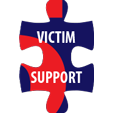
Victim Support
Victim support is broad and complex, and it is tackled by a multitude of local, national and international organisations around the globe. Here we look at three organizations, The Polaris Project (advocacy, training, lobbying, housing, helplines - US and Japan); GEMS (mentoring and support - New York State); and Somaly Mam (Rescue and reintegration of survivors from Cambodia). Each organization pursues grassroots solutions to trafficking problems, many of which are discussed on the google+ hangout discussion with Nicholas Kristof, Somaly Mam and Rachel Lloyd (below).
The Polaris Project
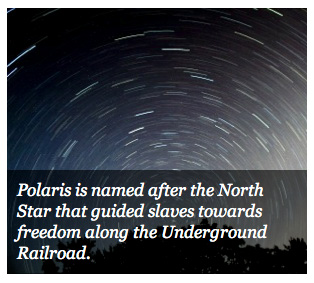
Ten Years of Impact
Since Polaris Project was founded ten years ago, they have taken extraordinary strides to combat the scourge of trafficking that exists in our communities.
2003 Working in the Community to Support Victims Polaris Project launches an innovative victim outreach program to uncover trafficking locations, directly target trafficking networks, identify victims and connect them to services. The D.C. Government awards Polaris Project its first federal grant to support this program.
2004: After Polaris Project films shocking video footage of sex trafficking taking place right on the streets of downtown Washington, D.C., one of the nation's first community-wide Human Trafficking Task Forces is launched. This coordination triples the success rates of prosecutions.
Polaris Project opens its Tokyo office, supported through a grant from the U.S. Department of State, to combat human trafficking in Japan.
2005: Working directly with members of Congress and mobilizing our online grassroots network, Polaris Project helps win passage of the federal Trafficking Victims Protection Reauthorization Act (TVPRA) of 2005. For the first time, this law increases programs for trafficking victims inside the U.S.
2006: Transitional Housing Program Offers Support to Survivors. Polaris Project opens one of the only transitional housing programs for trafficking survivors in the U.S.
2007: Polaris Project joins as a founding member of the Alliance to End Slavery and Trafficking (ATEST), launched by Humanity United, to strengthen U.S. laws and federal resources to fight trafficking.
2009: Through our high-level advocacy and meetings with senior officials, Polaris Project helps to secure a 25% increase in Department of Justice funding for services for survivors. Crucially, this funding supports U.S. citizen victims of human trafficking for the first time.
2010: Polaris Project helps the U.S. Department of Defense develop an online training for all military and civilian personnel on how to identify and respond to human trafficking. U.S. citizen victims of human trafficking for the first time.
2011: Law enforcement agencies open at least 172 new investigations based on tips forwarded from the hotline.
2012: 45,000 Calls. 5,500 Survivors. The National Human Trafficking hotline takes its 45,000th call and connects its 5,500th victim to services.
2013: Polaris' human trafficking hotline accepts text messages Victims, survivors and others wishing to connect with the national human trafficking hotline can send a text to "BeFree" or 233733.
"I can definitely think of clients who eventually made the call for help but if they had the option to text would have done it sooner," said Bridget Carr (professor at the University of Michigan Law School and director of the school's human trafficking clinic)
A Google+ Hangout on Modern Slavery
A three-way discussion about Sex Trafficking moderated by The Freedom Center, Cinncinati. By sharing moving and insightful observations and experiences, three inspiring individuals, illuminate their very different and very personal approach to solving the problem.
January 10, 2013
NICHOLAS KRISTOF: "Today I participated in a Google+ Hangout with two of my heroes, Somaly Mam of the Somaly Mam Foundation, and Rachel Lloyd of GEMS Girls. Both have devoted their life's work to fighting sex trafficking, and here's our discussion."
GEMS
From a one-woman kitchen table project, GEMS has grown to a nationally recognized and acclaimed organization and now is one of the largest providers of services to commercially sexually exploited and domestically trafficked youth in the US. GEMS advocates at the local, state, and national level to promote policies that support young women who have been commercially sexually exploited and domestically trafficked.
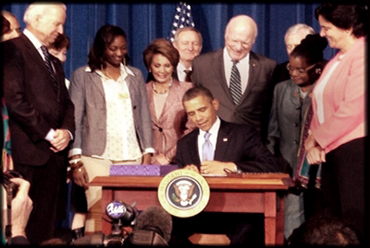
President OBAMA signing the Violence Against Women Act and mentioning a GEMS' success, "Tye," in his speech.
GEMS' mission is to empower girls and young women, ages 12–24, who have experienced commercial sexual exploitation and domestic trafficking to exit the commercial sex industry and develop to their full potential. http://www.gems-girls.org/
The Somaly Mam Foundation
The Somaly Mam Foundation (SMF) is a nonprofit organization dedicated to the eradication of sex slavery and the empowerment of its survivors, led by the vision and life's work of Cambodian survivor Somaly Mam. Founded in 2007, our multilateral approach helps victims to escape their plight, empowers survivors with economic independence and as advocates and activists in next-generation change, and engages governments, corporations, and individuals in critical conversations, strategic partnerships, and actions toward real change.
Working closely with partners in Southeast Asia, where the trafficking of women and children is widespread and where, for nearly two decades, Somaly and her team have rescued women and children from exploitation and abuse and assisted them on a journey to health, hope, and economic independence. Their Voices For Change program trains survivors as advocates, activists, and leaders of next-generation change.
Now in its third year, the Voices For Change program has already demonstrated success in many ways: in the personal and professional development of each leader, in improvements in the rescue and recovery process as a result of their help, and in leaders lending a critical voice to grassroots media campaigns and police trainings. The program demonstrates what is possible when you invest in a woman and believe in her potential.
The deeper impact of this work can be seen in subtle shifts in cultural norms, in a proud network of entrepreneurial female survivors starting businesses and social enterprises, in open conversations on human trafficking in mass media, in strategic government and police partnerships, and in a growing trust in the rule of law, critical to combating corruption and protecting the victims.
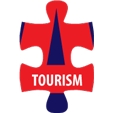
Tourism
The Code - Protecting Children From Sex Tourism
The Code of Conduct for the Protection of Children from Sexual Exploitation in Travel and Tourism was developed by ECPAT Sweden after the First World Congress against Commercial Sexual Exploitation of Children held in Stockholm in 1996. It was implemented for the first time in 1998 by the three principal tour operators in Sweden with much success. This led to the initiative being adopted by the international ECPAT network resulting in reaching over 1,300 signatories across 42 countries around the world.
Since 2004, The Code has operated as an independent non-profit organization. With board members coming from the tourism industry and non-industry sectors, the organization is guided by a group of diverse, committed leaders. Today, The Code has become an essential responsible tourism tool for the industry to integrate child protection into its corporate social responsibility or sustainable tourism initiatives. With more than 1,200 tourism companies from 42 countries having signed the Code (including Airlines, Hotel Chains and Travel Companies) the organisation has captured attention from around the world.http://www.thecode.org/who-have-signed/
The Code has been internationally recognized for their contributions to the field of child rights, responsible tourism and as a good model of tourism private sector – NGO collaboration. Beyond raising the profile of the crime, within the industry, they continue to stimulate the tourism industry to incorporate child protection into their CSR and sustainable initiatives.
Achievements include:
- Acknowledge by the UN [UNICEF, UNWTO, UN.GIFT] as a good practice of tourism private sector and NGO collaboration to combat exploitation of children
- Code membership is mandatory in order to achieve fair trade tourism in South Africa and acquire TourCert certification in Europe;
- Several governments and ministry of tourism have created a 'local' version of The Code or integrate it into the national certification for sustainable tourism initiative. The government of Costa Rica has integrated The Code into the Costa Rican Tourism Institute's Certification in Sustainable Tourism program. The government also plays an active role in promoting The Code within the Costa Rican tourism industry;
- The Code has been highlighted as a prominent corporate social responsibility tool by the Interfaith Centre on Corporate Responsibility.
Timeline
1996 – The Code was created by ECPAT Sweden with tour operators
2001 - 2004 – World Tourism Organisation [UNWTO] hosted The Code's Secretariat in Madrid;
2004 - 2011 – The Code Secretariat was installed in New York City with ECPAT USA;
2011 – Currently, The Code Secretariat is now in Bangkok, Thailand.
ECPAT is a network of organizations and individuals working together to eliminate the commercial sexual exploitation of children around the world. ECPAT was created in 1991 by a group of NGO workers and other concerned individuals in Asia as the campaign to End Child Prostitution in Asian Tourism. By 1996, the sexual exploitation of children had exploded into an international crisis, so ECPAT widened its scope of work beyond sex tourism to encompass child pornography and the prostitution of children within all countries. ECPAT International has 80 groups in over 70 countries, including the U.S. It seeks to encourage the world community to ensure that children everywhere enjoy their fundamental rights free from all forms of commercial sexual exploitation.
ECPAT•USA is the leading policy organization in the United States. Currently they are working on both local projects and collaborative Protect Children in Tourism (PCT) projects in Mexico, Belize and Brazil.
Taiwan tourism bureau and ECPAT Taiwan support the code
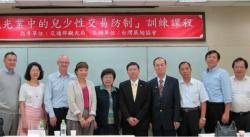
July 18, 2012
Over 60 participants from the Taiwan tourism industry, especially hotels and tour operators, attended a special one-day workshop on child protection as part of responsible tourism. The event was sponsored by the Taiwan Tourism Bureau and the Ministry of Transportation and Communication with the support of ECPAT Taiwan.
Key presentations were on the issue of commercial sexual exploitation of children in Taiwan, introduction to The Code, the principles of child protection in tourism and the role of the industry, and a sharing of lessons learned from ACCOR's corporate social responsibility actions on child protection.
As a result of the workshop, tourism professionals made strong requests to the Taiwan Tourism Bureau and the Hotel Association for further guidance and protocols regarding identification checking procedures and assistance in networking with key agencies and NGOs for additional support. For follow-up, ECPAT Taiwan and The Code will continue to support the tourism companies in taking action to protect children.
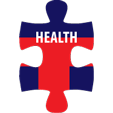
Health
The Health sector's responders to Human Trafficking highlighted here are all working collaboratively with other organisations who support their work on the frontline dealing directly with the victims and responding to their immediate, often critical, needs. These organisations range from being international to national to local organisations.
.jpg)
Doctors Without Borders/Médecins Sans Frontières (MSF) is an international medical humanitarian organization created by doctors and journalists in France in 1971.
Today, MSF provides independent, impartial assistance in more than 60 countries to people whose survival is threatened by violence, neglect, or catastrophe, primarily due to armed conflict, epidemics, malnutrition, exclusion from health care, or natural disasters. MSF provides independent, impartial assistance to those most in need. MSF also reserves the right to speak out to bring attention to neglected crises, challenge inadequacies or abuse of the aid system, and to advocate for improved medical treatments and protocols.
In 1999, MSF received the Nobel Peace Prize.
.jpg) Spain 2004 © Chris Maluszynski/MOMENT : Newly arrived migrants, asylum-seekers and refugees are gathered in a men's first-aid holding center in Lampedusa.
Spain 2004 © Chris Maluszynski/MOMENT : Newly arrived migrants, asylum-seekers and refugees are gathered in a men's first-aid holding center in Lampedusa.
MSF work on border shores, at "boat' entry points to Europe often encounters Human Trafficking:
Morocco
MSF International Activity Report on Morocco, 2011
"Women, children and unaccompanied minors are direct victims of smuggling networks, and most are victims of human trafficking: they are particularly vulnerable to kidnapping, rape, sexual exploitation and violence. MSF works in the northern towns of Oujda and Nador, which are close to the border, and in the Moroccan capital Rabat, where many migrants tend to gather."
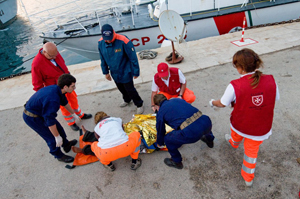
ITALY 2008 © Christian Sinibaldi
MSF staff and others help a sick passenger who arrived on a boat from Libya.
Tunisia
Trapped in Transit: The Neglected Victims of the War in Libya
"The recent traumatic experiences of those in Shousha camp have further exacerbated widespread feelings of despair. While most of those arriving in Tunisia in March initially felt relieved to have escaped Libya, they continue to face substandard living conditions, and now face fears for their security and for their future. Many are going back to Libya or attempting to cross the Mediterranean Sea to Lampedusa, Italy, ready to risk their lives again in a desperate search for a better refuge. Within plain view, traffickers smuggle people from Shousha camp across the border back to Libya."
![]()
Doctors at War • Against Human Trafficking provides critical medical care to human trafficking victims worldwide, helping them to recover from the long term effects of neglect and abuse.
They work with safe houses worldwide involved in the rescue and restoration of survivors. They also organize annual trips taking voluntary medical teams to the frontline to provide care where it is needed most.
.jpg)
Their partners in Nepal, Peace Rehabilitation Center, continue to find new ways to help the Kamaiya including non-formal education regarding trafficking.

Open Doors is the UK's National Health service providing free and confidential health care, advice and support services to people working in the sex trade. Their website is available in six languages (Polski, Română, 简ä½"ä¸æ–‡, Português, Magyar and English) and they utilise technology including SMS texting for warning and alerts and confidential reporting.
Bus Des Femmes
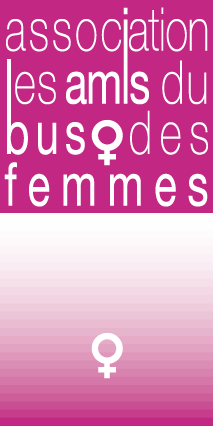
Paris based Bus Des Femmes, founded in the early 90s, was first created in order to support the World Health Organization in its activities within Paris, France. Bus Des Femmes focuses on an internal interactive intervention strategy. Using a mobile service run through special buses that move freely and responsively to districts in and around Paris where sex workers work. They involve the victims themselves in finding solutions within their own community and to actively participate in the association's programs and activities.. Their primary aim is to protect sex workers, most of whom are victims of trafficking, from violence and disease.
www.lesamisdubusdesfemmes.org/


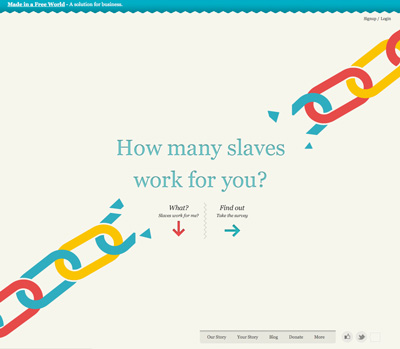 Slavery Footprint Website
Slavery Footprint Website
